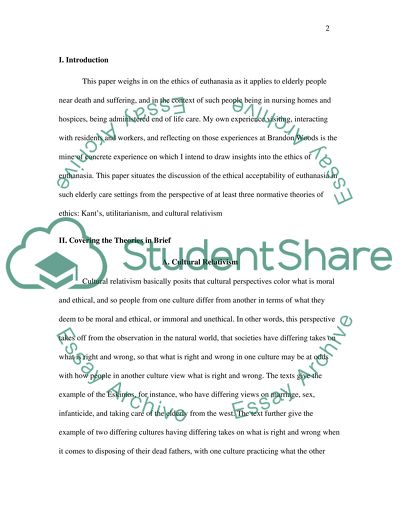Cite this document
(“Moral dilemma of whether euthanasia is ethically acceptable Essay”, n.d.)
Moral dilemma of whether euthanasia is ethically acceptable Essay. Retrieved from https://studentshare.org/philosophy/1463123-moral-dilemma-of-whether-euthanasia-is-ethically
Moral dilemma of whether euthanasia is ethically acceptable Essay. Retrieved from https://studentshare.org/philosophy/1463123-moral-dilemma-of-whether-euthanasia-is-ethically
(Moral Dilemma of Whether Euthanasia Is Ethically Acceptable Essay)
Moral Dilemma of Whether Euthanasia Is Ethically Acceptable Essay. https://studentshare.org/philosophy/1463123-moral-dilemma-of-whether-euthanasia-is-ethically.
Moral Dilemma of Whether Euthanasia Is Ethically Acceptable Essay. https://studentshare.org/philosophy/1463123-moral-dilemma-of-whether-euthanasia-is-ethically.
“Moral Dilemma of Whether Euthanasia Is Ethically Acceptable Essay”, n.d. https://studentshare.org/philosophy/1463123-moral-dilemma-of-whether-euthanasia-is-ethically.


